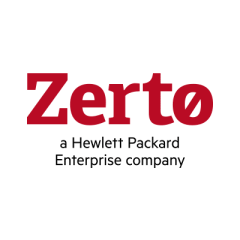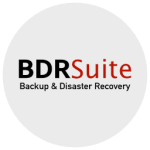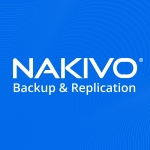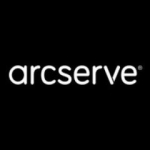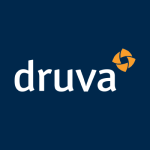What is our primary use case?
We primarily use Zerto for replication and disaster recovery.
How has it helped my organization?
Zerto is good in terms of providing continuous data protection. We have databases that require point in time recovery capability and Zerto is very flexible in this regard, compared with some other solutions we use, such as Sybase Replication and Oracle Replication.
We do not yet use Zerto's long-term retention feature but we are planning to do so. Currently, we are exploring AWS Glacier for long-term retention, and we will see how Zerto can help with the process.
Using Zerto has helped to simplify our process. The DBS steps are very deeply involved in the case of Sybase replication. This means that it takes a lot of technical skill, time, and effort to manage Sybase replication. Compared with that, Zerto is very user-friendly.
When we need to failback or move workloads, Zerto decreases both the number of highly skilled people involved and the time it takes to complete. For example, to do a command-line restore and recovery of Sybase involves pages of steps and it requires a talented DBA. However, with Zerto, we can take care of that with an intern. Only one person is involved in the process for either case, but with Zerto, fewer skills and experience in recovery are needed.
Fortunately, we have not yet been the victim of a ransomware attack. However, I am confident that Zerto can help, should that situation occur. Similarly, since implementing Zerto, we have not had any downtime. That said, we have simulated different scenarios and our results were good.
What is most valuable?
The most valuable feature is the point in time recovery. This allows us to recover at any point in time, up to a minute or so.
Zerto is pretty user-friendly. Normally, data recovery involves a lot of DBS skills but with Zerto, it is point-and-click.
It is very important to us that Zerto provides both backup and disaster recovery in a single platform. Because of problems that people are facing, we needed to have recovery time objectives (RTO) and recovery point objectives (RPO) for the major cloud providers. This is the primary reason that we were looking for an up-to-date and current solution.
What needs improvement?
I am a little bit worried about how Zerto will work with large volumes of data, such as replication for big data and very large files. I have not tested it yet, so I can't say for sure whether it will choke or not.
The two large clouds that we use are AWS and Azure, and compatibility with these is always important for us.
For how long have I used the solution?
We have been using Zerto for approximately five years. We are using one version back from the current one.
What do I think about the stability of the solution?
In terms of stability, so far it looks okay but I am not sure how Zerto will react to volume loads. We haven't had a chance to test that because we don't have such a large environment.
What do I think about the scalability of the solution?
Scalability has been good but I have yet to see how large a file it can handle.
We have two DBAs using the product, and then we have some interns to help out.
Currently, it is running in a small network where it is backing up a couple of replicated environments. We may increase our usage in the future, as we are now just beginning to back up everything to AWS.
How are customer service and technical support?
Zerto's technical support team is pretty knowledgeable.
Which solution did I use previously and why did I switch?
Prior to Zerto, we were using Sybase replication. When Sybase was acquired by SAP, we began having trouble when we needed technical support. The reason that we started looking for a replacement product is that we used to contact technical support in California when we needed help. However, we now have to call Germany first, only to have them redirect the call to California. SAP is a mess.
How was the initial setup?
I was involved in setting up the proof of concept, and I found that the initial setup was okay.
Once the PoC was complete, we went into small volume testing and then started using it after that. The deployment only took us a couple of hours.
What about the implementation team?
A couple of people from our organization handled the deployment, and we had some Zerto technical reps available to answer questions. The Zerto staff are pretty knowledgeable and they answered the questions well.
What was our ROI?
Compared to the licensing fees with Oracle and SAP, we see a return on investment.
What's my experience with pricing, setup cost, and licensing?
Price-wise, Zerto is fairly reasonable and I can't complain about it when we compare it against Oracle and SAP licensing.
We have not tried using any features that are outside of the standard licensing fees.
Which other solutions did I evaluate?
We looked into Oracle GoldenGate but it is pretty expensive and cumbersome. Sybase is better than Oracle in terms of pricing, but Zerto is cheaper.
What other advice do I have?
We have not yet enabled data recovery in the cloud, but we are planning to use it. As of now, we haven't tested it. We always back things up but in terms of restoring and testing, we are behind.
My advice for anybody who is considering this product is that it is pretty user-friendly compared to Oracle and SAP. This is a good solution to start with. Once it has been implemented, I suggest moving to volume testing to see how well it handles large volumes of data.
We have never had a real situation where we were under the gun for the purpose of RTO and RPO recovery times. As such, I can't say for sure how it will behave in a real situation but we are satisfied with our tests.
I would rate this solution an eight out of ten.
Which deployment model are you using for this solution?
On-premises
Disclosure: PeerSpot contacted the reviewer to collect the review and to validate authenticity. The reviewer was referred by the vendor, but the review is not subject to editing or approval by the vendor.

